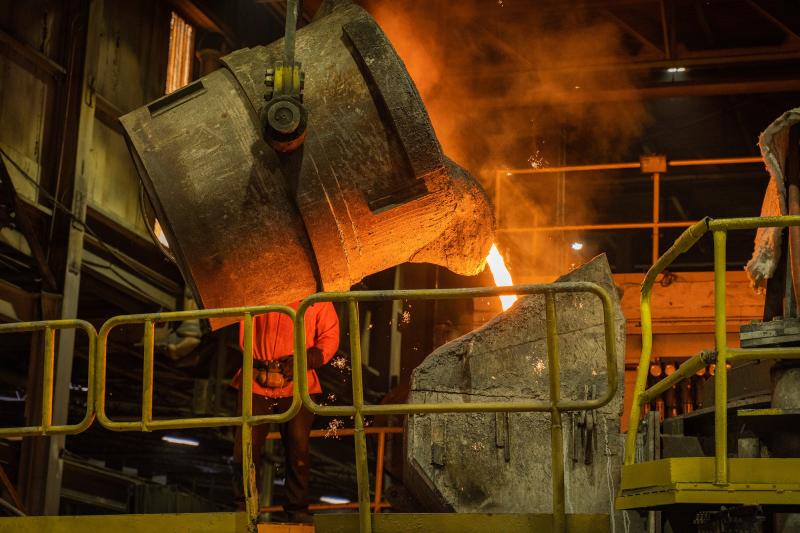In today's industrial world, an enormous amount of parts and tools are cast from metal. From manhole covers to brakes, valve bodies to screws, they come in all shapes and sizes. But have you ever wondered how complex metal shapes are cast?
What Makes a Casting Complex?
Not all casting jobs are created equal. Casting a metal ingot, for example, is very simple — the mold is simple, like a brick. However, industries that require specialized metal parts, such as manufacturing, automotive, and agriculture, rely on highly specific molds. These parts often feature hollow sections, areas of varying thickness, thin protrusions, holes, and other factors that make them more difficult to cast.
The troubles with complex casting don't end with the shape, either — there's also the matter of near-net casting. Near-net shape casting means casting a shape as close to the size specifications as possible. This is crucial to ensure the piece can be used, especially in industrial applications. For example, a railcar connector's top cap helps to couple two railcars together. If the size or thickness of the top cap is off, it will be too tight, too loose, or won't fit at all. At best, this means the top cap has to be recast; at worst, the faulty cap fails while in use, causing the train cars to disconnect.
Due to differences in mold size and manufacturing, it can sometimes be difficult to achieve near-net shape casting, even with basic shapes. Complex shapes pose a much greater challenge due to their intricate designs.
Sand Mold Solutions for Complex Castings
Complex casting may be difficult, but that doesn't mean it's impossible. Many of the challenges it poses can be circumvented with the proper casting process — in this case, sand casting.
Sand Casting for Removable Molds
With many complex casting jobs, the issue comes from creating a complicated mold that can be safely removed without breaking or deforming the resulting piece. Metal molds are durable, but are incredibly difficult to remove safely.
This is where sand casting comes in. Sand casting utilizes a mold made of compressed sand that can be shaken off once the metal has cooled. This makes it safe to remove even the thinnest parts of a complex piece.
Core-In Sand Casting
Because sand molds use a mold pressed into sand, there are limitations to the details it can capture. The function of core-in sand casting is to add holes or hollow chambers to the mold. This is accomplished by creating a "core" out of sand in the necessary shape, then inserting it into the mold. While metal cores are also used, a sand core breaks down after use, making it easier to remove from a complex casting.
Mold Costs
Complex shapes require complex molds, which can be costly when implementing die casting. Die casting requires steel dies machined into shape in order to create the mold. While these dies are durable, the initial creation cost is high. Sand molds, meanwhile, are created by pressing a pattern into sand. While the sand is specially treated to create the mold, it's still cheaper to create than a metal die. The sand can even be reused, making it even more cost-efficient.
Why Use Ductile Iron for Casting Complex Shapes?
Ductile iron isn't the only material that can be sand cast into complex shapes, but it's one of the best. It's extremely durable, more so than gray iron, but flexible enough to bend without fracture. It's also significantly cheaper than cast steel, making it the more economical choice.
Ductile iron's castability also makes it an excellent material for continuous casting. Continuous casting is a process where molten metal is continuously fed into a mold, partially cooled, shaped, and cut off at the desired length. This process is commonly used for tubes, but can also be applied to complex castings in some instances.
Quality Casting with Urick Ductile Solutions
If you're looking for quality sand-cast ductile iron, either simple or complex, trust Urick Ductile Solutions. We use the finest grain sand available in the industry, ensuring a smooth finish and flawless detailing on every piece. Our rigorous testing processes and as-needed adjustments mean your parts are guaranteed to meet your needs. Request a quote today and see how we can cast the solution you need.



